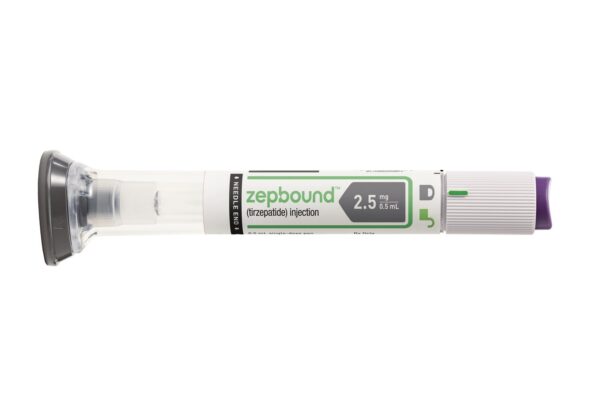
Eli Lilly already posted preliminary data showing its obesity drug, Zepbound topped Novo Nordisk’s Wegovy on measures of weight loss in a head-to-head clinical trial. More detailed results, including key secondary measures of the Phase 3 study, give greater insight into the comparison, including a key measure that analysts say helps give the Lilly product a competitive edge.
In preliminary results, treatment with Zepbound for 72 weeks led patients to lose an average 20.2% of body weight versus 13.7% for those in the Wegovy arm, meeting the main goal of the Phase 3b study, Lilly reported in late 2024. Additional data from the Phase 3b study were presented Sunday during at the European Congress on Obesity meeting and published simultaneously in The New England Journal of Medicine.
On the measure of how many patients achieved at least 10% weight loss, Lilly said 81.6% of participants treated with Zepbound achieved this secondary endpoint compared to 40.1% of those treated with Wegovy. The Lilly drug topped Wegovy across three additional weight-reduction targets in the study, named SURMOUNT-5. On a fifth secondary endpoint of measuring change in waist circumference, the Zepbound group achieved a superior 18.4 cm (about 7.2 inch) reduction compared to an average 13 cm (about 5.1 inches) for the Wegovy arm.
“In the SURMOUNT-5 trial, Zepbound demonstrated a significantly higher magnitude of weight reduction compared to Wegovy across all comparisons,” Leonard Glass, senior vice president, global medical affairs, Lilly, said in a prepared statement. “These data confirm Zepbound as a leading treatment option for people living with obesity and equip healthcare providers with critical insights to make well-informed treatment decisions as part of a comprehensive obesity care plan.”
The main pharmaceutical ingredient in Zepbound is tirzepatide, a peptide engineered to bind to and activate the GLP-1 and GIP receptors in order to spark feelings of satiety. By contrast, semaglutide, the main ingredient in Wegovy, only activates the GLP-1 receptor. Gastrointestinal side effects are common across the class of these metabolic medicines.
Lilly said gastrointestinal complications reported for its drug in the head-to-head study were classified as mild to moderate in severity, though 6.1% of those in the Zepbound arm discontinued treatment due to adverse events. By comparison, 8.0% of participants the Wegovy arm discontinued treatment. Lilly added that the study was not powered to compare safety and tolerability between the two drugs.
Tolerability was one of the key comparison measures absent from Lilly’s release of preliminary data late last year. To Leerink Partners analyst David Risinger, the now released details on this measure are welcome news for Lilly. Rates of nausea, constipation, diarrhea, and vomiting were similar for both drugs. Zepbound’s demonstration of greater weight loss with tolerability comparable to Wegovy confirm the Lilly drug’s superior benefit-to-risk ratio, Risinger wrote in a note sent to investors on Monday.

NEMT Partner Guide: Why Payers and Providers Should Choose MediDrive’s TMS
Alan Murray on improving access for medical transportation.
The head-to-head SURMOUNT-5 study enrolled 751 participants with obesity as well the comorbidities hypertension, dyslipidemia, obstructive sleep apnea, or cardiovascular disease. These participants did not have diabetes. Those who completed this clinical trial are continuing in an extension study that could support use of another Lilly drug as an oral maintenance treatment.
Participants continuing in the extension study were randomly assigned to receive Lilly’s experimental once-daily oral GLP-1 drug, orforglipron, or a placebo. The main goal of this 52-week study is to evaluate orforglipron’s ability to maintain the body weight reduction achieved after initial treatment with once-weekly injectable Zepbound. This study, which will evaluate about 300 patients, is expected to be complete by January 2026.
Orforglipron is an oral small molecule designed to activate the GLP-1 receptor. Last month, Lilly reported preliminary Phase 3 results for orforglipron showing statistically significant reductions in measures of blood sugar and body weight in patients with type 2 diabetes. Based on these results, Lilly said it is preparing to file regulatory submissions for the drug in both weight management and type 2 diabetes.
Photo by Eli Lilly








